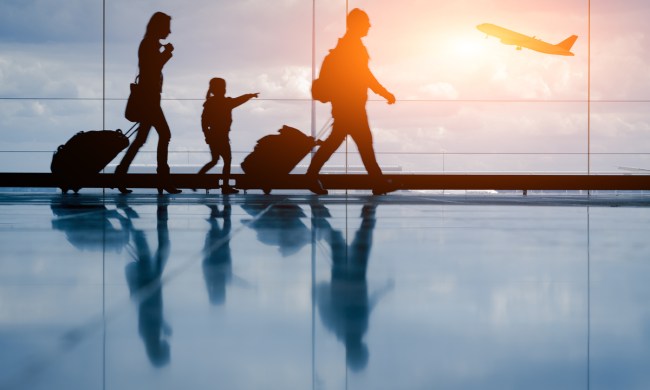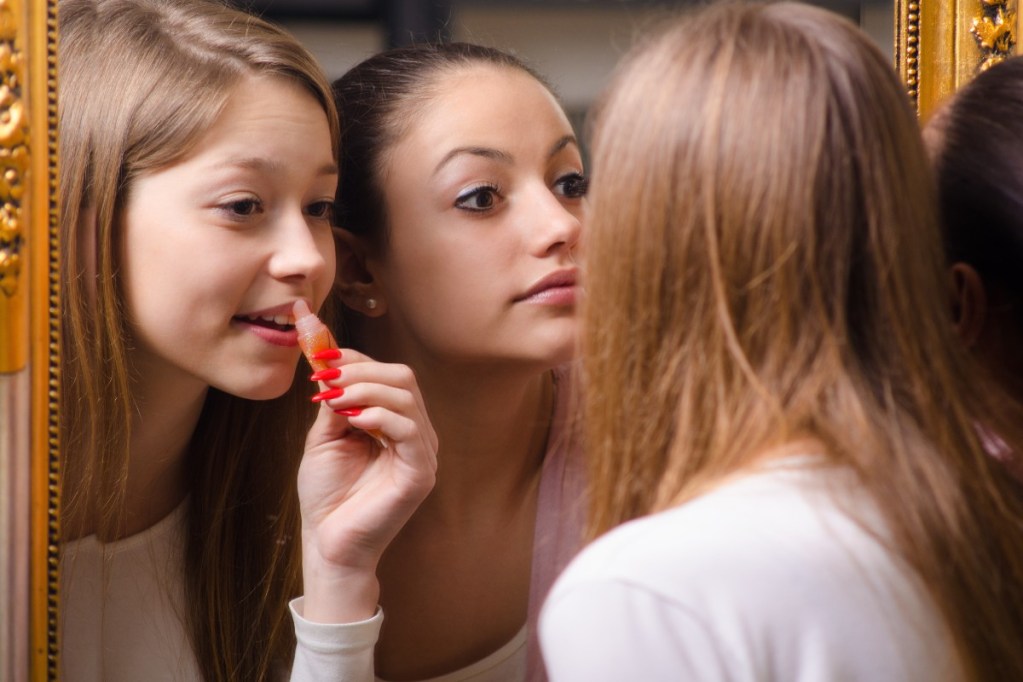
Giving out your personal makeup tips to your teenager may be a rite of passage — but what about your younger kids? It seems that children are wearing makeup now at younger and younger ages, and as your child transitions into their tween years, and sometimes even younger, they may want to start wearing some makeup as a way to express themselves. Experimenting with makeup doesn’t have to be taboo, and it can even be a safe and healthy way for your child to experiment with their creativity and express their personality.
You may find yourself wondering how old do you have to be to wear makeup, especially if your parents were strict about the matter. Take a look at our helpful parenting tips below as a guide for how to talk to your child about makeup.
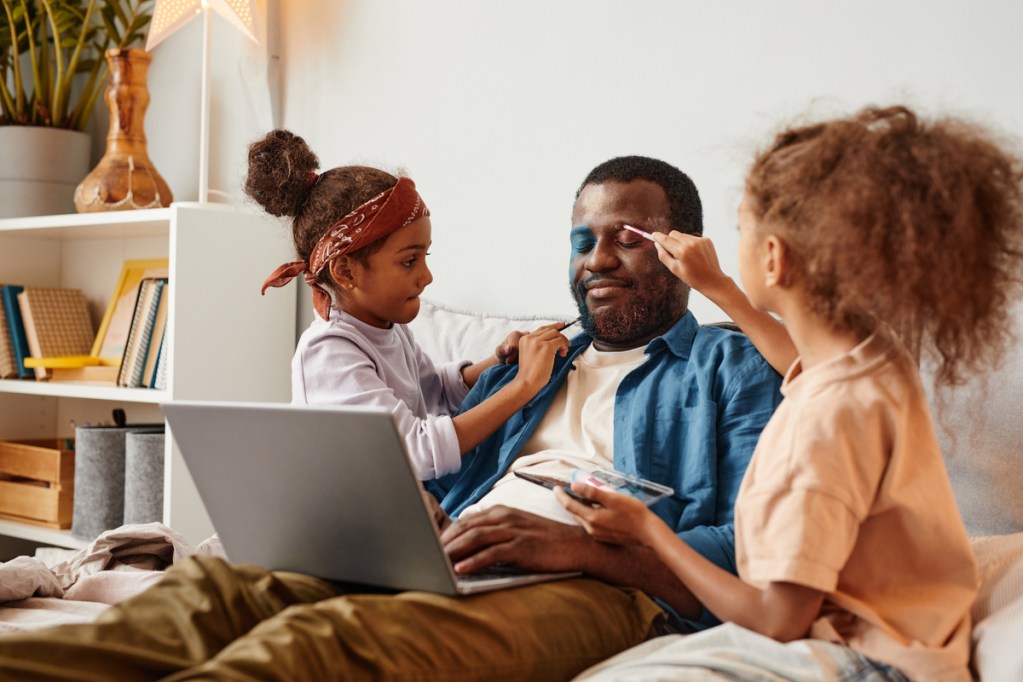
At what age will my child turn to makeup? Should I be concerned?
Starting around the age of 11, your child might get interested in makeup. When they were small, you may have even let them play with a toy version of a makeup palette or apply a dab of lipstick for fun. However, at 11, they’re starting to feel self-aware and internalize the influences around them. This includes their family, friends, and of course, celebrities. While not all celebrities wear makeup and may not wear it at all times, they’re often glammed up or retouched for events and photos. Your child might also be encouraged by makeup gurus they watch online or follow on social media if they have active social media accounts.
One study found that around 40% to 50% of 12- to 14-year-olds wear makeup. This includes staples like eyebrow pencils, mascara, eyeliner, and more coverage products like foundation, concealer, blush, and bronzer. This age range seems to be the common stage when your child will most likely ask you if they can finally try some beauty products.
But not to worry, when you show your tween that you’re open to dialogue, they’re more likely to develop healthy beauty habits from the start. Open communication can also put a damper on them going behind your back and building unsafe beauty habits.
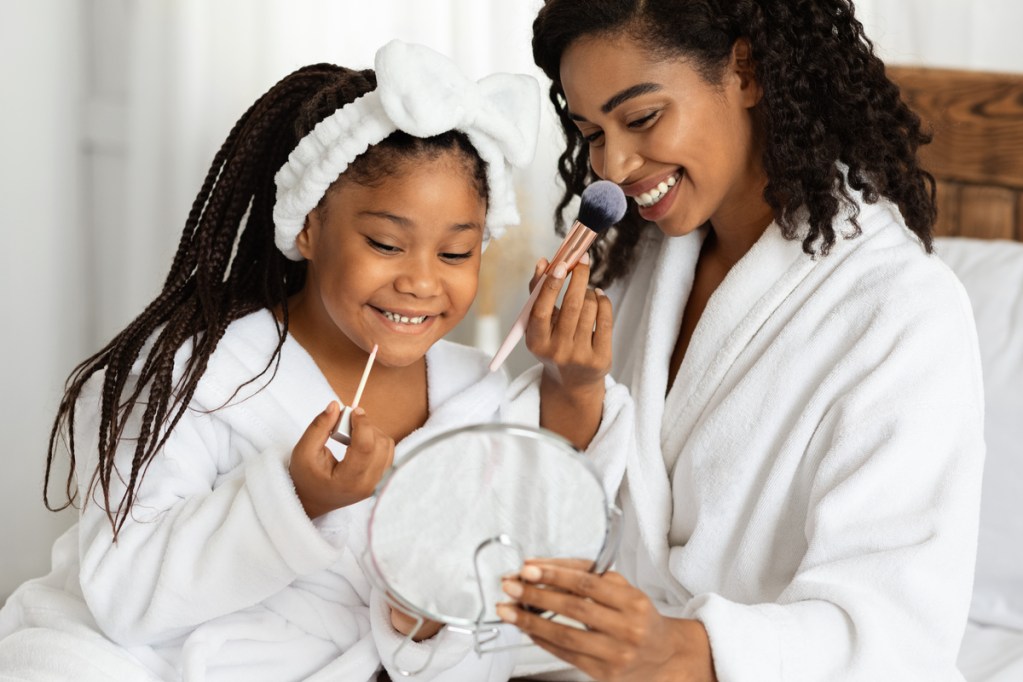
How can I talk to my child about makeup without sounding too critical?
For starters, there is one important topic to discuss with your child when they ask, “How old do you have to be to wear makeup?” You might ask why they’re interested in makeup in the first place. This is not an exhaustive list of the possible reasons your child might want to try makeup. The main thing to remember is your and your child’s makeup discussion will have the best outcome if you find a good middle ground.
Reasons your child wants to try makeup
- Wants to improve self-esteem
- Wants to fit in with their peers
- Wants to express themselves in a creative way
- Wants to impress someone they’re attracted to
- Wants to mimic a role model
- Wants to cover up skin imperfections
If you don’t feel comfortable with your child going to school in a full face of makeup, let them know. Perhaps letting them wear something like a tinted lip balm and eyebrow pencil or skin-tone-appropriate blush and lip gloss would be a good compromise.
You also want to set boundaries for when and where it’s OK to wear makeup. For instance, you might give them the green light for special occasions like school dances or family gatherings, but not every single day at school.
We know makeup is often seen as an inappropriate tool used to increase sex appeal, and perhaps that’s why so many parents are reluctant to allow their children to even go near it. But let’s face it: tweens will likely go into full rebel mode if you double down on their makeup privileges. The ideal tone you want to set is one of understanding so your child feels comfortable talking to you about makeup.
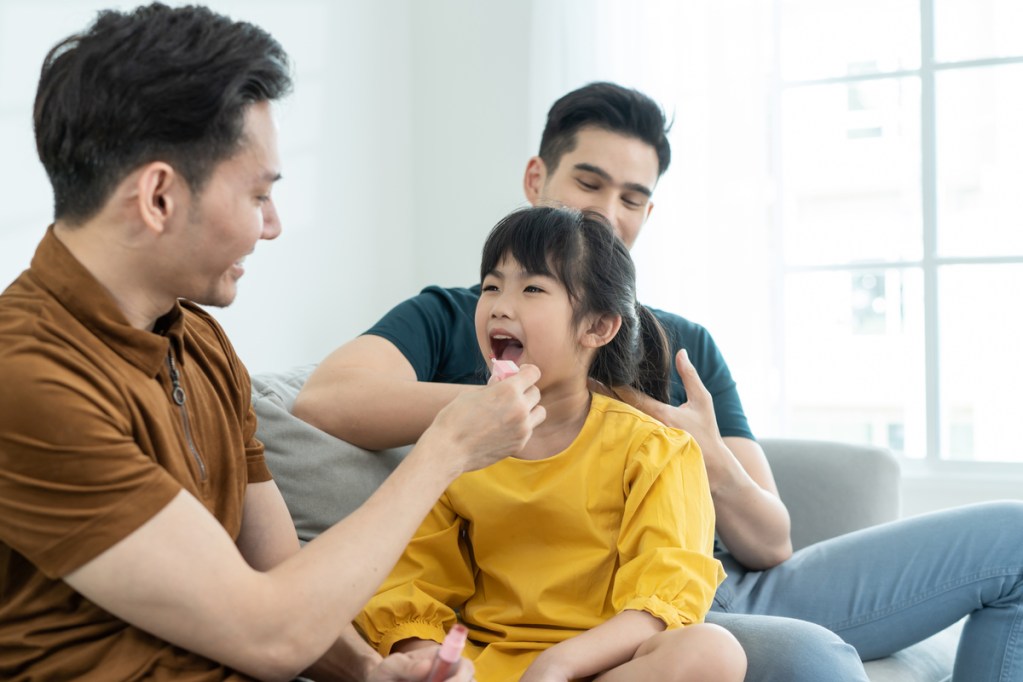
What are helpful makeup and skincare basics to discuss with my child?
Instead of steering your child away from makeup completely, teach them safe habits right from the beginning. Some common tips are cleaning brushes and tools regularly to avoid infections. Another big thing is to use products by their expiration dates. For starters, an opened mascara will typically last between three and six months. On the other hand, powder eye shadow can last up to two years.
You should also warn your child about sharing makeup and tools with other people. For sanitary reasons, they should use their own kits and tools at all times. Besides cleanliness, share some makeup application wisdom. If you’re not a makeup enthusiast, many beauty counters and department store cosmetic sections offer free application demonstrations. At these sessions, you and your child can discover natural looks that are age-appropriate.
Lastly, explain to your child that skin care is a big part of makeup. This step is especially helpful if they want to use makeup to cover up blemishes like acne or uneven skin tone. Shop for natural facial cleansers, moisturizers, and face masks together so your tween can learn about healthy skin care.
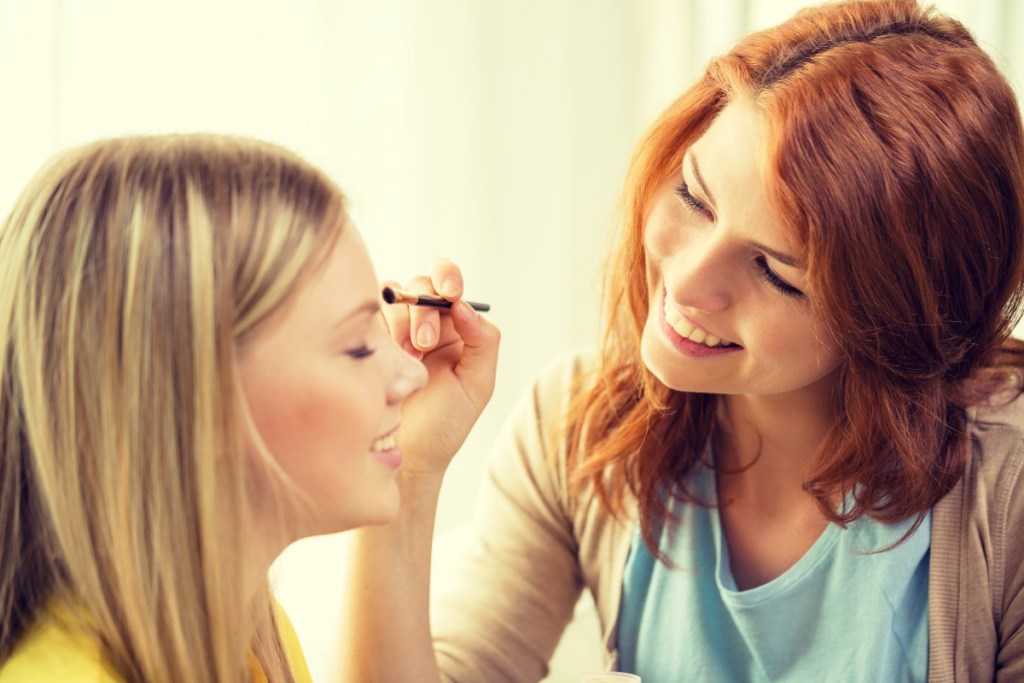
Where do you start?
Kids seem to know a lot more about makeup these days than they did even 10 years ago. Thanks to social media influencers and celebrity makeup artists, many tweens and teens are more skilled at doing their makeup than the adults in their lives.
Celebrity makeup artists Bobbi Brown told Oprah Magazine that kids are wearing makeup at a younger age these days, but what’s most important is that they do what makes them feel good about themselves. “All girls are beautiful — what it takes is time,” she says. “Find what makes you special.” She recommends middle school as an appropriate time to start wearing makeup and is a fan of a more natural look for younger kids who are just starting to experiment with makeup.
At the end of the day, you need to discuss with your child what you’re comfortable with and help them discover products that make them feel good about themselves.
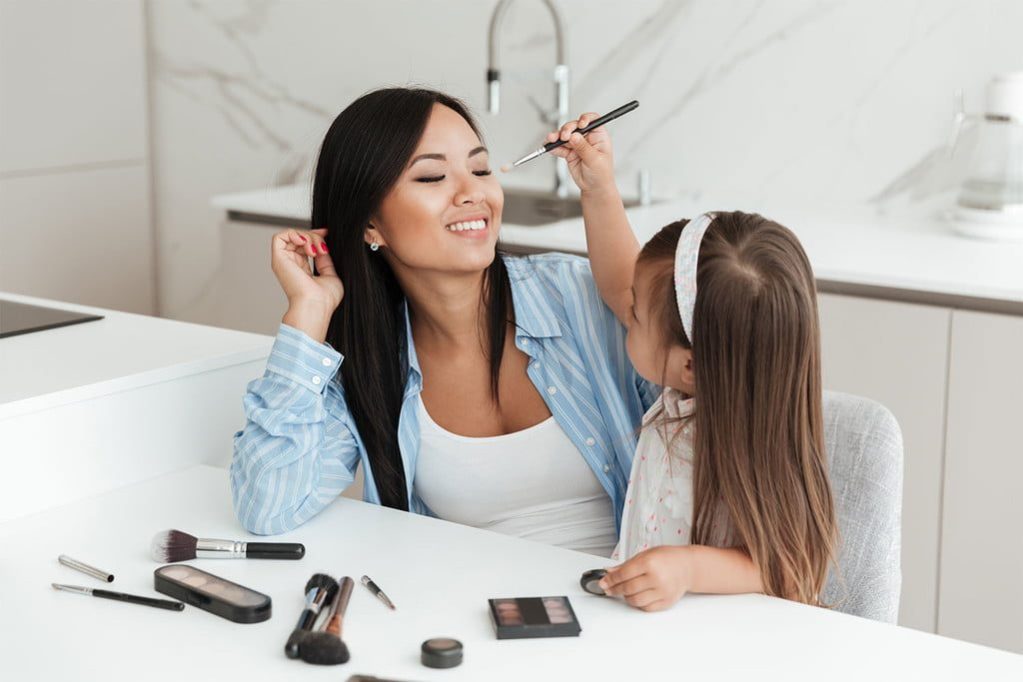
Are there other alternatives to makeup if my child is still too young?
Many makeup brands contain questionable ingredients. There are makeup alternatives such as food-based products like fruit-tinted lip balms and cheek tints. There are also countless makeup do-it-yourself projects you and your child can try out at home.
If you feel your child is too young for makeup, you can encourage them to try other ways of self-expression. Trying out new clothing, getting a hair makeover, or enrolling in online art classes are all great ways your child can still have fun experimenting without the use of makeup.
So, there you have it. There’s no exact answer to how old you have to be to wear makeup; the makeup discussion between you and your child can be relaxed and engaging. It can even turn into a learning activity if you decide to craft your own products at home. Just remember that your sweet child is growing up, and you are the role model they look up to for healthy makeup habits.

